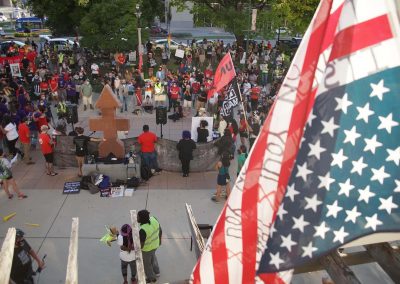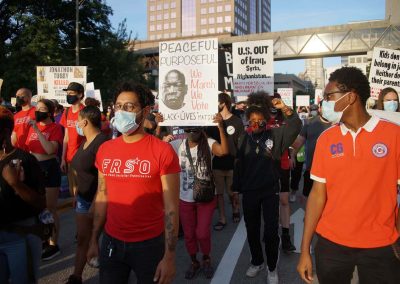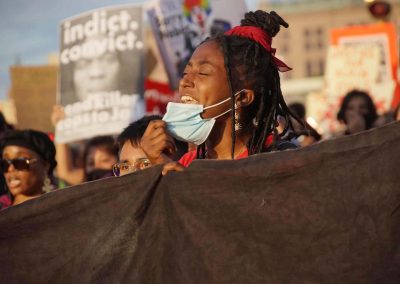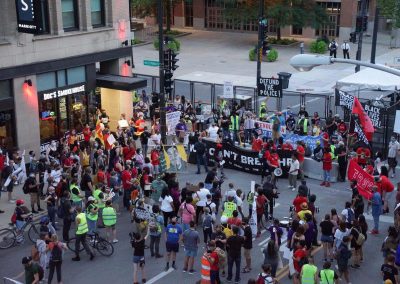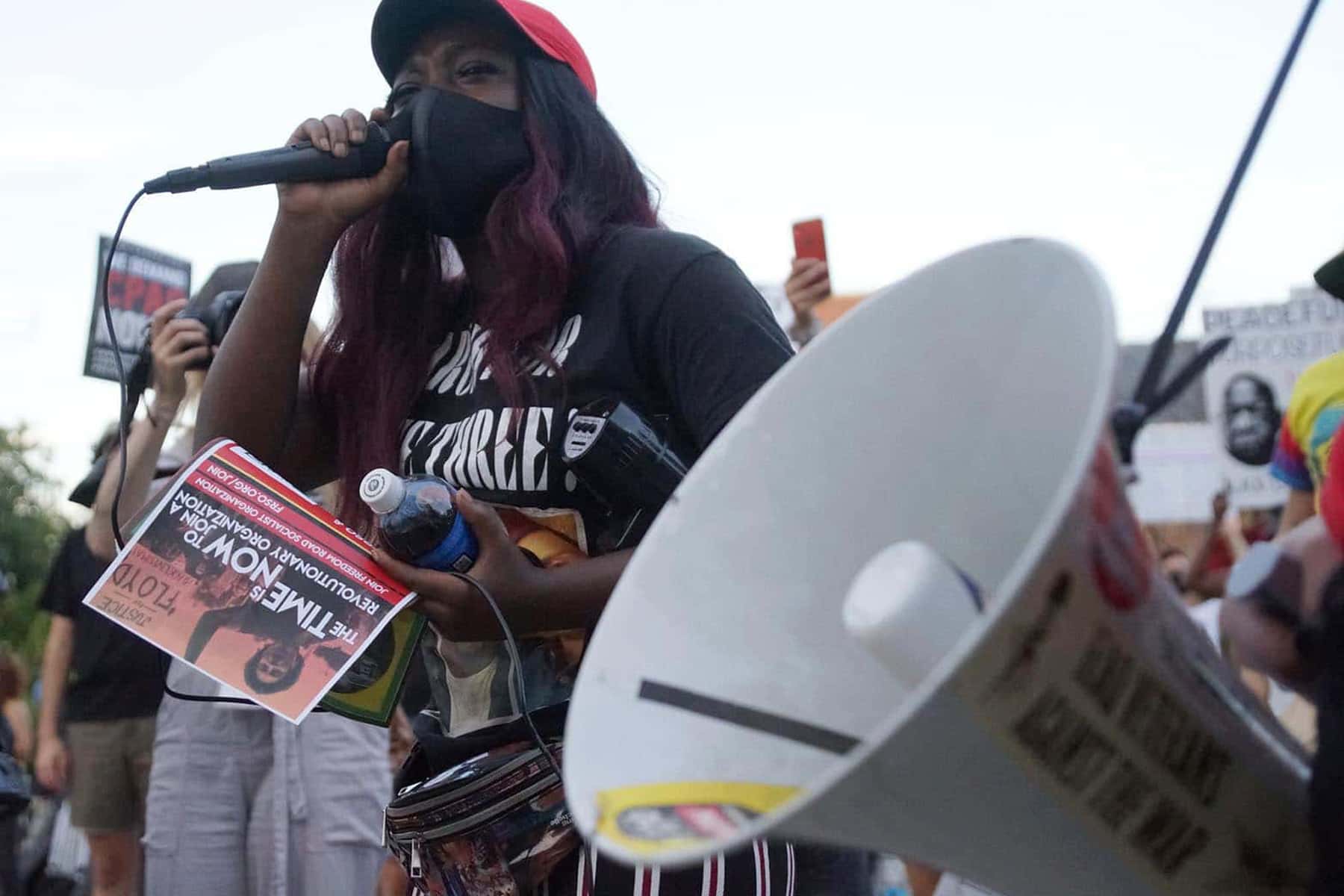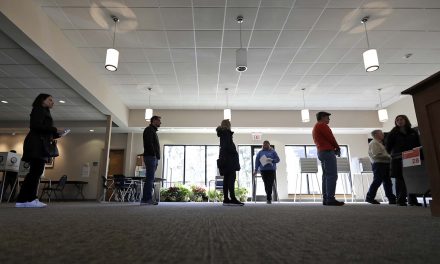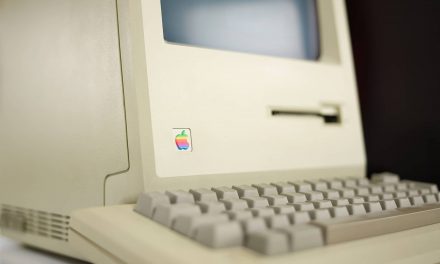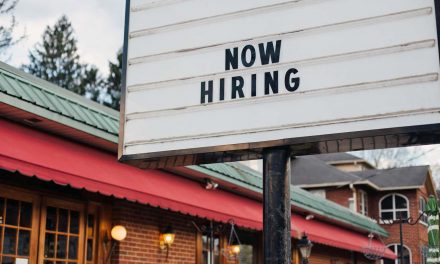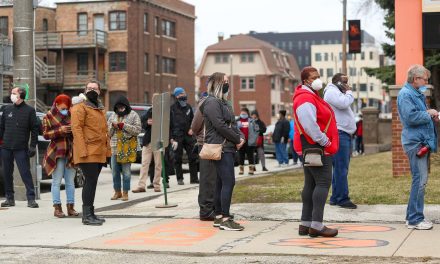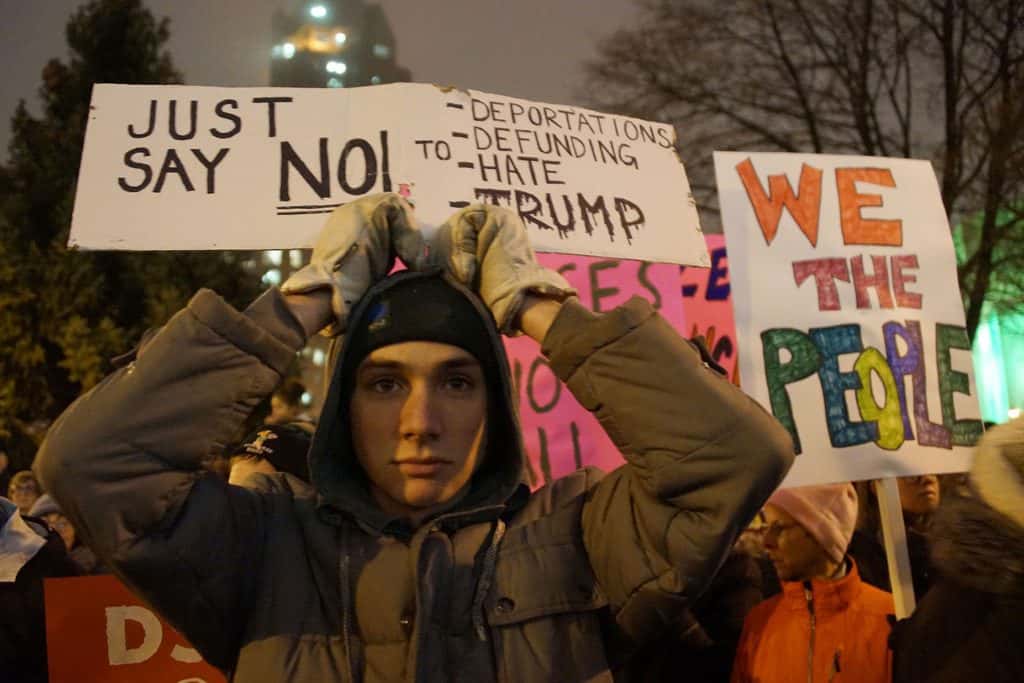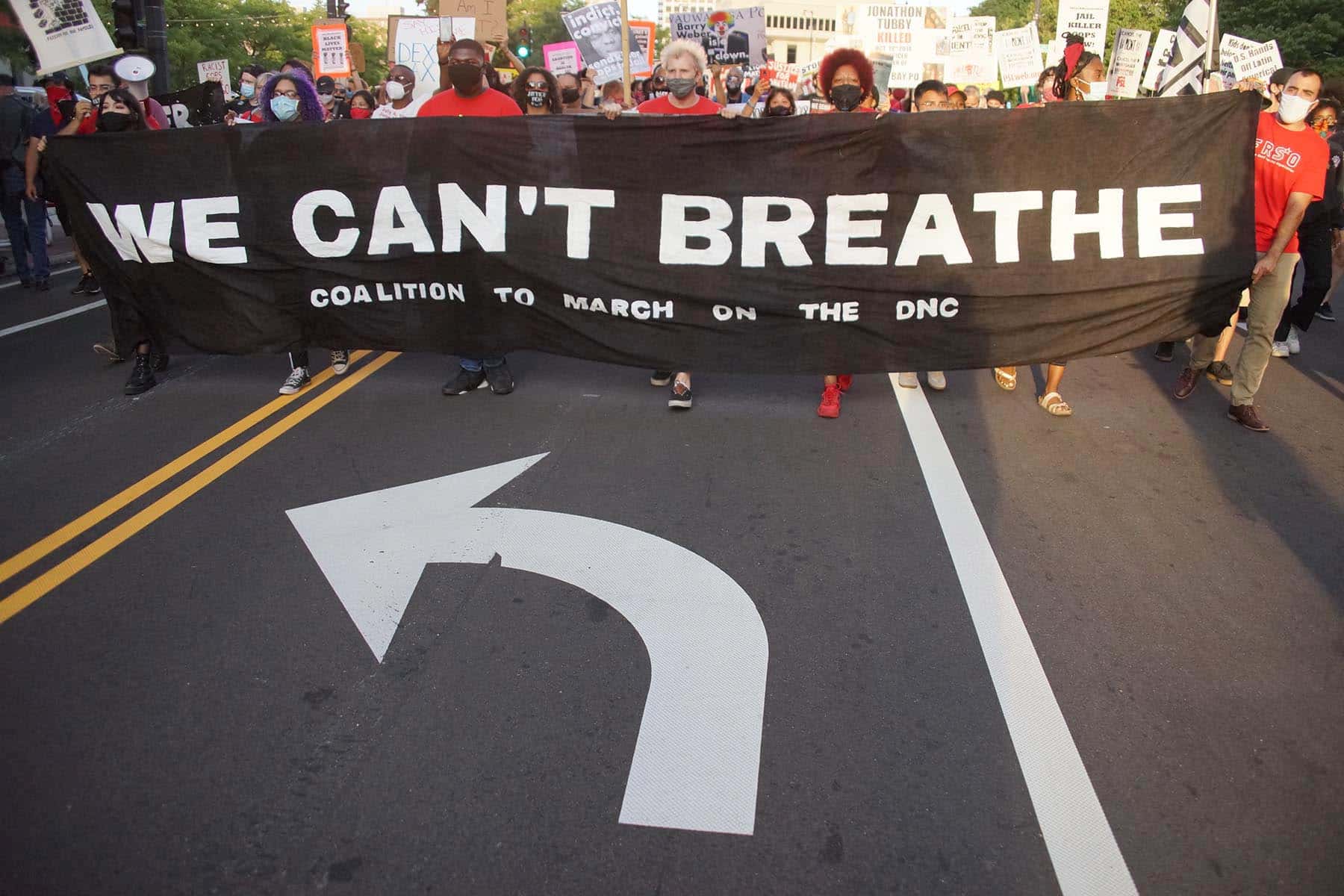
The pandemic forced Milwaukee’s 2020 Democratic National Convention to go virtual, but some feel the party abandons the Black communities that get them elected.
As protesters outside Wauwatosa’s city hall shouted “wake up, wake up,” to energize the crowd, activist Charley Frazier remarked how just miles away, the Democratic national convention (DNC) had kicked off on what was The People’s Revolution’s 81st night of demonstrations. The coalition of organizers are made up of young activists challenging the current political system and trying to force systemic change.
“This is the Milwaukee they don’t want you to see,” she said. “[It’s] very segregated. You’re not even welcome out [in the suburbs], and when you do travel out there, you’re targeted.”
More than 50,000 visitors were expected to descend on the Brew City for its convention, but when the pandemic forced Democrats to go virtual, the fallout hit like a shockwave for a host city already reeling from the brunt of Wisconsin’s coronavirus outbreak and the recession that followed.
An anticipated $200m economic boom instead spiraled into a substantial loss. The pivot also proved to be the final straw for many of the city’s African American residents. The coronavirus shutdown worsened national crises that disproportionately devastated Black Americans across the country, exacerbating racial inequalities in Milwaukee.
“There’s this old saying from the Black community that ‘when America catches a cold, the Black community catches pneumonia,’” said Reggie Jackson, a columnist with the Milwaukee Independent, and historian with the National Black Holocaust Museum located in the city.
Donald Trump has criticized Democratic mayors in the midwest for decades of decline and recent unrest. He leaves out states like Wisconsin’s history of Republican governors and legislators whose years of austerity measures largely steered tax revenue and reinvestment funds toward whiter, wealthier suburbs and rural counties.
Decades of unequal investment in Milwaukee have rendered it “the epitome of a 21st century racial regime”. While local leaders aimed to revitalize its downtown and Lakeshore ahead of the DNC, block after block of boarded homes and businesses bombard Black neighborhoods. Black Milwaukeeans have also grown jaded by a two-party system with neither speaking to their issues.
After years of disrepair, the museum was set to reopen just in time for the convention. The pandemic ended those plans. Jackson said it was reflective of a Democratic party that often abandons the Black communities that get them elected.
“We’ve been denied the ability to have the city leaders, whether they be elected officials or business leaders, invest in our neighborhoods,” he said. “To have this pandemic hit, to have the DNC not come in the way that it did, it’s like getting hit three different times.”
A wake-up call
More than 88% of Black Americans voted for Hillary Clinton in 2016. Trump won the state of Wisconsin by just 23,000 votes. Back then, nearly 93,000 Black Milwaukeeans stayed home. But support for Democrats has declined slightly since Barack Obama left office. Along with a Russian propaganda campaign that targeted Black voter apathy, analysts pinpoint young progressives overall who stayed home or sought third-party alternatives.
Many activists say the lethargy from a scaled-down DNC could stifle local efforts to solicit enthusiasm behind Joe Biden and his running mate, Kamala Harris. Some say it’s a warning for Democrats not to take Black voters for granted.
“I think people are scared because we have all of these crises going on,” said Jordan Terry, of Metcalfe Park Community Bridges in Milwaukee’s central city. “Our government isn’t helping us out. So it’s up to us.”
Just miles from what was left of the DNC presence, Terry was canvassing the streets of Metcalfe Park to collect surveys on the city’s budget. Registering residents to vote came second. Despite inequities in education, poverty and healthcare that lead the nation, 46% of the city’s budget is allocated for law enforcement. Amid a pandemic just 2.2% of the city’s proposed 2020 budget is geared toward public health.
“People are protesting because their material needs aren’t being met,” she said. “A lot of people feel hopeless around our voting and just the voting system, because it almost feels rigged.”
Terry’s distrust of the system was echoed by residents, including Charles Griffin. While local taxpayers foot a $250m tax bill for Milwaukee’s brand new, and currently shut down, basketball stadium, Griffin still waits for a break from a possible second stimulus bill amid the recession.
The pandemic had temporarily shut down the baseball stadium where Griffin is a chef, leaving him to care for small children as school resumes from home. He said if candidates truly cared about voters, “they’d beat the street”.
“You want our votes, you will come down here and see what we really want and how we really live,” he said. “It’d probably bring a tear to some of their eyes”.
Generational call for change
Wedged between protests against the police killing of George Floyd that first ignited in Minnesota, and unrest that accelerated following the shooting of Jacob Blake in nearby Kenosha, was the city’s missed moment. Just like the national party, local Democratic leaders aren’t on the same page about the path forward.
Locally, the city’s progressive youth activists often face roadblocks from their moderate elders. For the Democratic state representative David Bowen, an unprecedented pandemic and uprising is “a wake-up call” to Democrats to “tap into the energy” of a youth-led movement for justice.
“This is righteous anger that young people are engaging in all over the country,” he said. “It’s this amazing synergy that says ‘if you don’t tap into this, you’re going to lose us.’ So they have to do it.”
Bowen is the only state lawmaker to show up for The People’s Revolution at nearly every night of protests.
“We can’t piecemeal our way out of the problems that have accumulated over decades, or make small incremental changes to give people hope that this system will be accountable to them,” he argued. “There is an opportunity for the vice-president and senator to be champions on the issues that are driving people to not give up every day.
“People are fighting for change. That opportunity is incumbent upon Democrats rising to the occasion,” he added.
Like Terry, Charley Frazier and The People’s Revolution aren’t necessarily focused on the presidential ticket. For them, change is long-term, it’s local. Frazier insisted it was not that Democrats take Black voters for granted, but that decades of failed policy have led to generations of jaded voters.
“We sell ourselves short. I don’t think that we realize how powerful our votes really are,” she said. “We all have a little bit of power, and we all have to believe that. Sometimes somebody just has to show us that in a way that we understand. You have to come to our level.”
Kеnyа Еvеlyn
Lee Matz
Portions originally published on The Guardian as ‘Don’t take Black voters for granted’: Milwaukee leaders and activists warn Democrats
Help deliver the independent journalism that the world needs, make a contribution of support to The Guardian.

